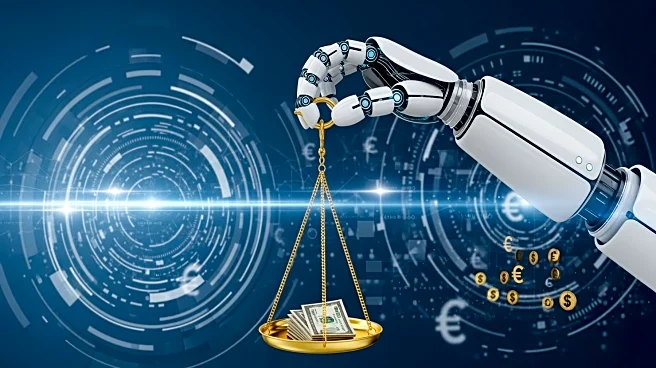What's Happening?
Since the launch of ChatGPT in November 2022, the U.S. job market has seen a significant decline in job openings, while the stock market has surged. Economist Derek Thompson argues that the primary factor
behind this trend is not AI, but monetary policy. The Federal Reserve's interest rate hikes, starting in March 2022, have cooled the economy, reducing investment and hiring. Trade policy and immigration enforcement have also contributed to the decline in job openings, particularly in sectors like manufacturing and construction.
Why It's Important?
The analysis highlights the complex interplay between AI, monetary policy, and economic trends. While AI is affecting certain job sectors, the broader impact of interest rate hikes and policy decisions is shaping the labor market. Understanding these dynamics is crucial for policymakers, businesses, and workers as they navigate economic challenges. The concentration of stock market gains in AI-related companies raises concerns about potential market bubbles, affecting investor confidence and economic stability.
Beyond the Headlines
The divergence between job openings and stock market performance underscores the existence of two distinct economies: a booming AI economy and a lackluster broader economy. This situation raises questions about sustainable growth and the potential for economic bubbles. The impact of AI on employment, particularly for younger workers, suggests a need for policies that address workforce transitions and skills development.










